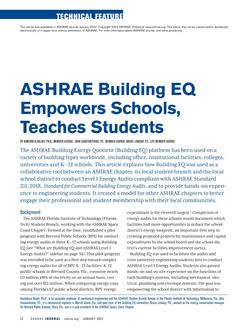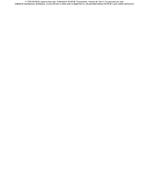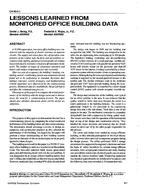Demand-side p/anning has been a primary focus of e/ectric uti/ity p/anning activities over the past 10 years. End-use forecasting mode/s have been deve/oped, conservation programs have been designed and imp/emented, and much discussion has been generated on how the customer is using electricity.
Various statistical and engineering methodologies have been employed to estimate customer demand profiles and energy usage for major end-uses. These methods of disaggregating the total usage have been somewhat successful in the residential class. However, acceptable results in the commercial and industrial classes have been harder to achieve due to the wide variety of end-uses.
Direct metering of electric end-use has been done on a limited basis, but with the proliferation of multi-channel solid-state recording devices with remote reading capabilities and improved power line carrier technology, the practice has been expanding. Submetering is expensive, but given the lack of primary information on how electricity is actually being used and the high cost of building new generation plants, submetering has been chosen as a cost-effective component of the integrated demand and supply-side planning efforts at one Wisconsin electric utility.
In early 1986, a pilot project was started to investigate the technologies available to conduct an end-use metering project. Equipment from six manufacturers was selected for installation in residential customer’s homes. Valuable experience and data were obtained from this project. Based on the pilot results and discussion with other utilities active in this area, it was determined that a planned commercial class end-use metering project should be done on a contract basis. This paper details the evolution of the commercial project and describes the methods being used for customer selection and recruitment, premise measurement plan development, metering system design, testing and installation of equipment, and data verification and storage procedure.
Citation: Symposium, ASHRAE Trans., vol. 95, pt. 2
Product Details
- Published:
- 1989
- Number of Pages:
- 5
- File Size:
- 1 file , 630 KB
- Product Code(s):
- D-28261


